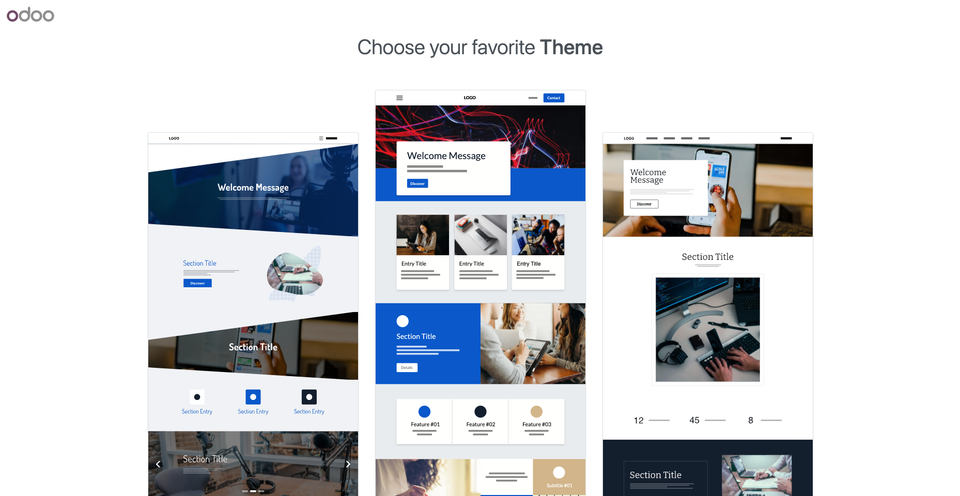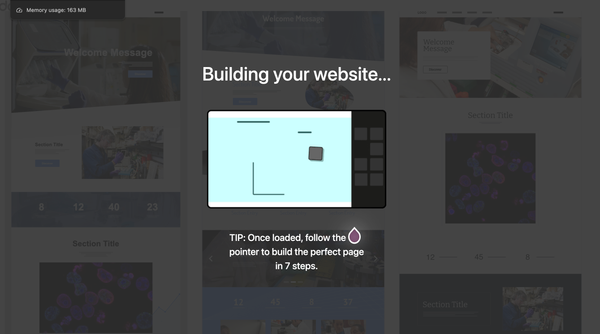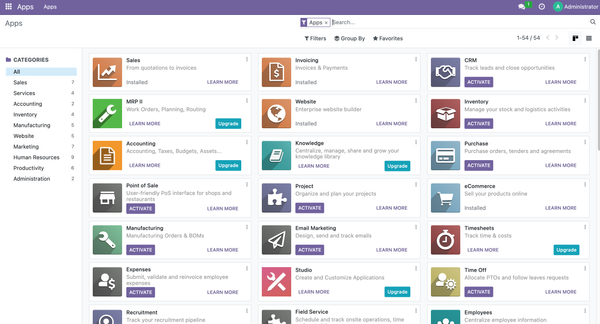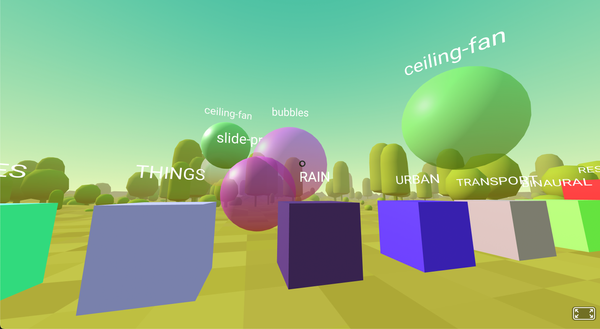From ERP to Multi-Website CMS: How Odoo Community Edition Stacks Up Against WordPress Multisite
Table of Content
Managing multiple websites can be a logistical nightmare for small businesses, freelancers, or even mid-sized companies. Traditionally, platforms like WordPress Multisite have been the go-to solution.
But what if your business also needs robust ERP (Enterprise Resource Planning) features, inventory management, or an integrated e-commerce solution? Enter Odoo Community Edition – the unexpected yet powerful answer to running multiple websites with multiple domains, all under one roof.
In our previous exploration of Odoo as a CMS, we uncovered how Odoo can effortlessly transform from a powerhouse ERP into a flexible website builder.
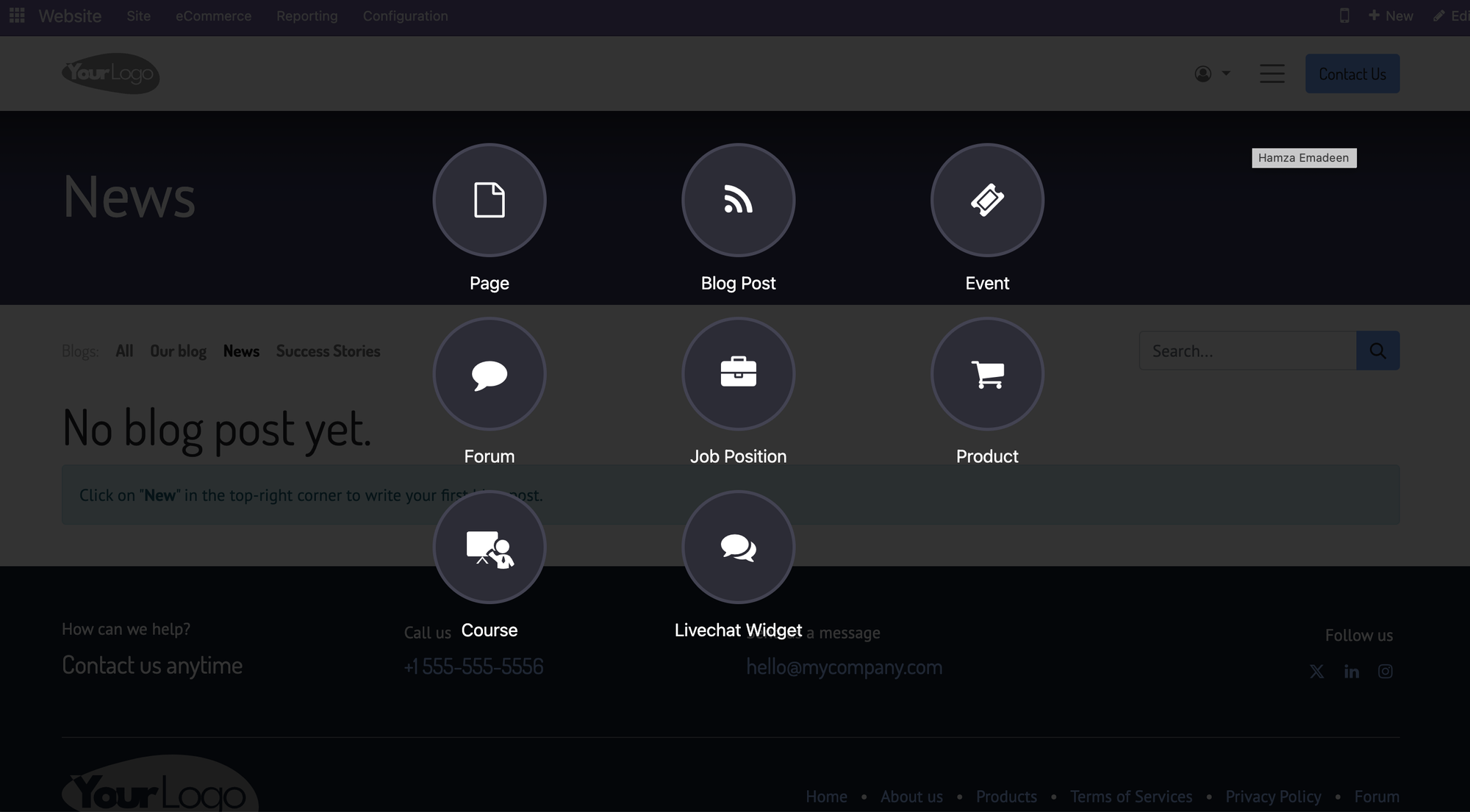
Now, let’s take a deeper dive into how Odoo's multi-website functionality compares to WordPress Multisite, and why it might just be the perfect solution for your growing web empire.
Multi-Websites in Odoo Community Edition: The Hidden Gem
When people think of Odoo, they usually imagine inventory, accounting, or CRM.
But Odoo Community Edition also comes with a robust website module that supports multiple websites, each with its own domain, content, and style. This feature is available out-of-the-box, no costly add-ons required.
What Does This Mean for You?
Imagine running:
- www.techstore.com for your electronics business,
- www.bookhaven.com for your bookshop,
- www.consultingworld.com for your freelance consulting.
Each website can have its own unique design, content, products, and even e-commerce store – all managed from a single Odoo backend.
No need to juggle multiple dashboards or logins. One backend, infinite possibilities.
It’s like having a Swiss Army knife for your web management needs.
How Does It Compare to WordPress Multisite?
WordPress Multisite is a veteran when it comes to managing multiple websites. But how does it stack up against Odoo’s multi-website feature? Let’s break it down.
| Feature | Odoo Community Edition | WordPress Multisite |
|---|---|---|
| Multiple Domains | Yes, out-of-the-box | Yes, requires configuration |
| Independent Themes | Yes, per website | Yes, per site |
| E-commerce Support | Yes, built-in | Requires plugins (e.g., WooCommerce Multisite) |
| ERP Integration | Full ERP suite | No ERP capabilities |
| Shared Backend | Yes, seamless switching | Yes, via Network Admin |
| SEO Control | Per website | Per site |
| User Management | Role-based permissions, shared users | Network roles, shared users |
Why Choose Odoo Over WordPress Multisite?
- All-in-One Solution: With Odoo, you get an ERP, CRM, inventory, and multi-website management all in one place. No need to cobble together plugins and third-party tools.
- E-commerce Integration: Odoo’s multi-website feature lets you run independent online stores for each website. Each store can have unique products, prices, and checkout flows – without additional plugins or services.
- Simplified Management: Switch between websites effortlessly from a unified backend. Manage your content, orders, inventory, and customers without hopping between different dashboards.
- Cost-Effective: Odoo Community Edition is open-source and free to use. WordPress Multisite, while free, often requires paid plugins for advanced functionality like multi-store e-commerce.
Setting Up Multi-Website in Odoo: Easier Than You Think
You don’t need to be a tech wizard to set up multiple websites in Odoo. Here’s a simplified guide:
- Enable Multi-Website: Go to Website Settings in your Odoo backend and enable multi-website support.
- Create a New Website: Navigate to Website → Configuration → Websites and create a new website. Assign a domain and choose a theme.
- Configure Your Domains: Point each domain to your Odoo server via DNS settings. Update your web server (Nginx or Apache) configuration to handle each domain.
- Customize Content: Design your pages, blogs, products, and menus for each website independently.
In a matter of minutes, you’ll have a fully functional multi-website setup, powered by Odoo’s ERP capabilities.
Final Thoughts: From ERP to Multi-Website Mastery
If you’re looking for a solution that combines the flexibility of WordPress Multisite with the power of an ERP system, Odoo Community Edition is worth a serious look. It’s not just a CMS; it’s a business management toolkit that scales with your needs.
Whether you’re a freelancer managing multiple brands, a retailer with different niche stores, or a business consultant juggling various clients, Odoo can help you streamline your digital presence – all from a single, powerful platform.
Ready to give Odoo’s multi-website feature a spin? Your websites (and your sanity) will thank you.
For more insights on how Odoo shines as a CMS, check out our detailed guide: From ERP to CMS: How Odoo Shines as a CMS.

